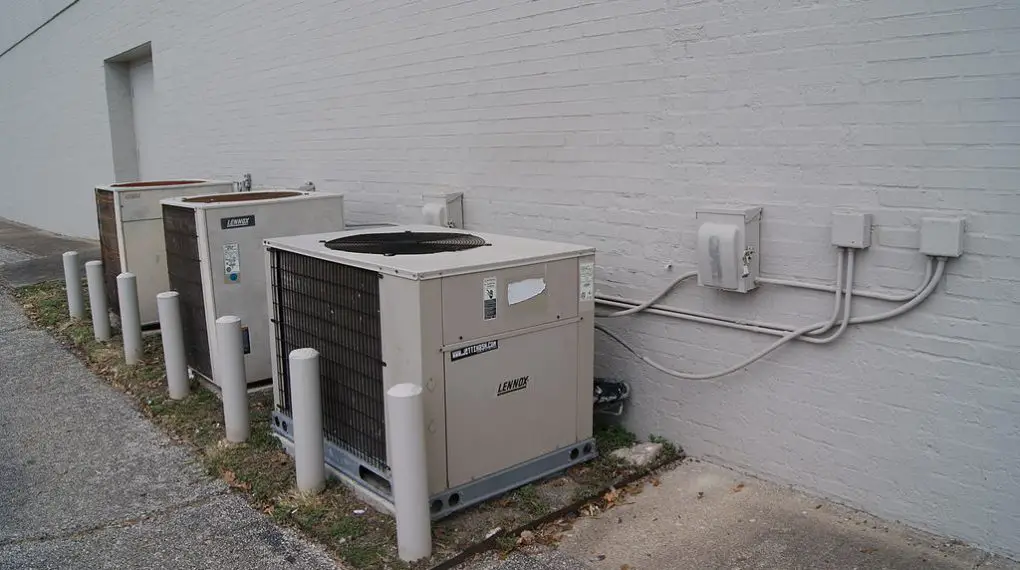This article will reveal why AC compressor starts after 2-3 minutes.

Table of Contents
Detailed Explanation Why AC Compressor Starts After 2-3 Minutes
The 2-3 minute delay in the start of the AC compressor is a carefully engineered feature designed to ensure the longevity and efficiency of your air conditioning system. Understanding this feature involves exploring various technical aspects:
Pressure Equalization
After a cooling cycle, the refrigeration system of your AC contains varying pressures. The high-pressure side might be significantly more pressurized than the low-pressure side. If the compressor were to start immediately, it would have to work against this pressure difference.
This could cause mechanical strain and potentially lead to damage. The delay allows the pressures to naturally equalize, making the compressor’s job easier and extending its life.
Preventing Short Cycling
Short cycling is not just hard on the compressor; it can also lead to inadequate cooling. When the compressor turns off and on too quickly, it doesn’t run long enough to remove sufficient humidity and heat from the air.
This can lead to uneven temperatures and discomfort. The delay helps ensure each cooling cycle is complete and effective.
Electrical Component Protection
Rapid cycling can lead to voltage fluctuations and excessive current draw. This, in turn, can overheat electrical components and lead to failures. By ensuring the compressor does not start immediately, the system avoids sudden spikes in electrical demand. As a result, components like capacitors and motors are protected.
Energy Efficiency
The compressor is the most energy-intensive part of your AC unit. Starting and stopping frequently requires more energy than running consistently for a longer period. The delay minimizes unnecessary starts and stops. This allows you to save energy and reduce your electricity bills.
The Importance of Regular Maintenance
Regular maintenance of your AC unit is crucial for its efficiency and longevity. A well-maintained unit can prevent unexpected breakdowns, especially during peak summer months when you need it most. Here are key maintenance tasks you should perform regularly:
Filter Cleaning and Replacement: Dirty filters restrict airflow and reduce efficiency. Clean or replace filters every 1-3 months, depending on usage and environmental factors.
Refrigerant Level Check: Incorrect refrigerant levels can cause your system to work harder, leading to increased wear and tear. Have a professional check and refill the refrigerant as needed.
Electrical Components Inspection: Regular checks of wires, capacitors, and contacts are important. Worn or faulty components can lead to major system failures.
Cleaning Coils and Fans: Dust and debris on the evaporator and condenser coils can hinder performance. Clean these components to ensure efficient heat transfer.
Ductwork Inspection: Leaky or blocked ducts can significantly reduce system efficiency. Inspect ductwork for leaks, blockages, and insulation issues.
Remember, while some maintenance tasks can be DIY, others should be left to professionals. Scheduling annual check-ups with a qualified HVAC technician is recommended for comprehensive maintenance.
Check out these other articles…
AC Compressor vs Motor: Comprehensive 411 Comparison
AC Compressor vs Evaporator: Comprehensive 411 Comparison
AC Compressor Noise When On: 7 Simple Steps to Fix It
AC Compressor Makes Noise When Clutch Engages: 4 Easy Fixes
AC Compressor Smoking When AC Is On: 5 Simple Steps to Take
Common Troubleshooting
Even with regular maintenance, you might encounter issues with your AC unit. If the compressor fails to start after the usual delay, check the thermostat settings, ensure the power supply is uninterrupted, and inspect the fuse or circuit breaker. If these are in order, it could be an issue with the internal components, requiring professional assistance.
When in doubt, it’s best to consult with a professional HVAC technician. They can diagnose and fix complex issues that are beyond the scope of routine maintenance.